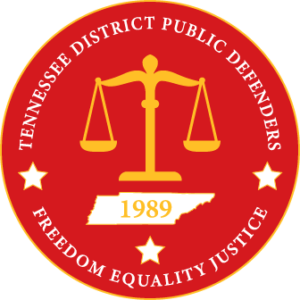ABOUT US
Public Defenders are Public Servants. We are real lawyers. We’re here to represent, advocate and fight for you and your right to a just and fair trial.
We begin working on your case immediately after you’ve been arraigned and assigned to our office. In order for our office to represent you on your active criminal case, you must let the judge know that you would like to be represented by a public defender and that you cannot afford to hire a private attorney. Our office is equipped with some of the best counsel in the country. Our attorneys work tirelessly year-round to provide a fair, just and zealous defense for our clients. Our lawyers have studied in some of the best law schools in the country, and they’re not afraid to fight for you.
Committed to Zealous Advocacy
Our attorneys work tirelessly year-round to provide a fair, just and zealous defense for our clients. After attending some of the best law schools in the country, we’re not afraid to fight for you.
District public defenders fulfill the state’s obligation under the U.S. Constitution to provide a lawyer to persons accused of crimes who can not afford a lawyer. District public defenders are attorneys elected in each judicial district who serve, as appointed by the courts, to represent indigent persons facing deprivation of liberty in criminal matters. The statewide system of public defenders was created by the General Assembly in 1989 as an alternative to the practice of court-appointed private attorneys.
Prior to 1986 public defender offices existed only in the 20th (Metropolitan Nashville, Davidson County) and the 30th (Shelby County) districts. In 1986 a “Pilot Public Defender Program” was created in seven (7) judicial districts (7, 22, 23, 24, 25, 27, & 29). A statewide public defender system was created by the General Assembly in 1989 consisting of a district public defender, assistant public defenders and district investigators for each judicial district, except the twentieth and thirtieth districts. The personnel of the public defenders are state employees, entitled to all state employee benefit programs.
The Office of the Executive Director serves as the central administrative office for each of the 31 district public defenders. The executive director is responsible for budgeting, payroll, purchasing, personnel, and administration of all fiscal matters pertaining to the operation of district public defender offices. Other duties include coordinating defense efforts of the various district public defenders, development of training programs, and maintaining liaison with various state government agencies.
The executive director is elected by the district public defenders for a four-year term and serves as a member of the Judicial Council and other judicial planning groups.
The entire Conference is required by statute to meet once each year. However, the Conference typically gathers more frequently. Conference members, in a cohesive effort, strive to improve the criminal justice system. By pooling individual talents and expertise, the Conference has become an important participant in the legislative and judicial processes. Conference members meet regularly to consider Conference issues, pending legislation, and judicial actions. Three times a year the Conference convenes for intensive training sessions in areas such as management, updates to existing law, and technological advances.
